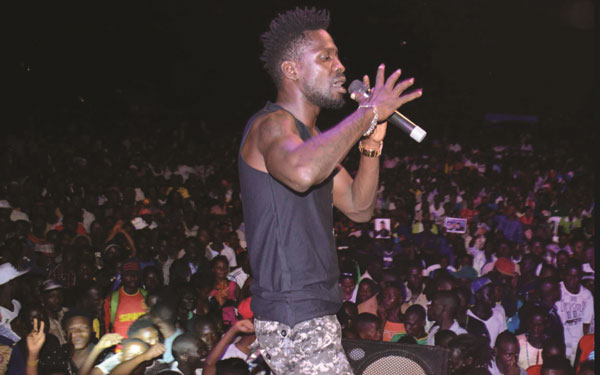
FEATURE | Alice Aterianus-Owanga | In Gabon as in other African states, rap has become instrumental in constructing political identity.
On August 17, Gabon celebrated 57 years of independence with a massive free concert in the capital, Libreville. The aim: to promote national unity in a festive fashion. An impressive lineup of local hip hop stars – including Ba’Ponga, Tris, Tina and Ndoman – were invited to draw in the younger crowds.
The celebrations held particular significance in light of another, darker anniversary. Last year on August 31, a shockingly violent crisis erupted following President Ali Bongo’s contested electoral victory.
One year on, the country is still feeling the social, political and economic effects, as is its rap scene.
In the early 1990s, Gabon’s government was shut down by violent demonstrations and a general strike. It forced dictator Omar Bongo, who had been in power since 1967, to set up a national conference reestablishing a multiparty system and granting greater freedom of expression.
Against the backdrop of this popular uprising, the youth of Libreville began writing rap music. Inspired by American hip hop artists like Public Enemy and NWA, and French rappers like NTM and Assassin, they expressed their need for escape, freedom and change.
Yet this subversive scene hasn’t been totally exempt from the kinds of ties between music and politics that have existed since the onset of African independence in the 1960s. In fact, some protest rappers have links to the “system” through family ties with political elites. V2A4, for example, is made up of the son of the Interior minister (a close relative to former president Omar Bongo) and the child of a local businessman. Both study in France and live off the wealth of the “system”.
Bling Gabon style
From the 2000s on, inspired by gangsta rap, video clips have started to feature more gold chains, souped-up cars, women in suggestive poses and virile displays of masculinity.
Ushered in by bling style rapper Kôba, a new generation of rappers began to write songs that deviated from the protest-driven hip hop of their predecessors. This trend was encouraged by the appearance of new record labels, with close ties to the government and elites, further reinforcing the link between music and politics.
This fusion between music and politics reached new highs during the 2009 election. Presidential candidate Ali Bongo used the popularity of rap artists to attract youth support and distinguish himself from his father, Omar, who had died in June that year.
Following his election in 2009, Ali Bongo brought new faces from the world of hip hop into the government. Due to these kinds of affiliations, Bongo’s semi-authoritarian regime has exercised particularly tight control over the hip hop scene, in particular via the media.
Without jobs
Right from the start, Bongo’s first seven-year term in office was marked by a decline in living standards and social infrastructure and continuing high unemployment levels – more than 20% of the population, and 35% of young people are without jobs. This, while the Bongo family’s spending has reached outrageous highs.
 The Independent Uganda: You get the Truth we Pay the Price
The Independent Uganda: You get the Truth we Pay the Price



